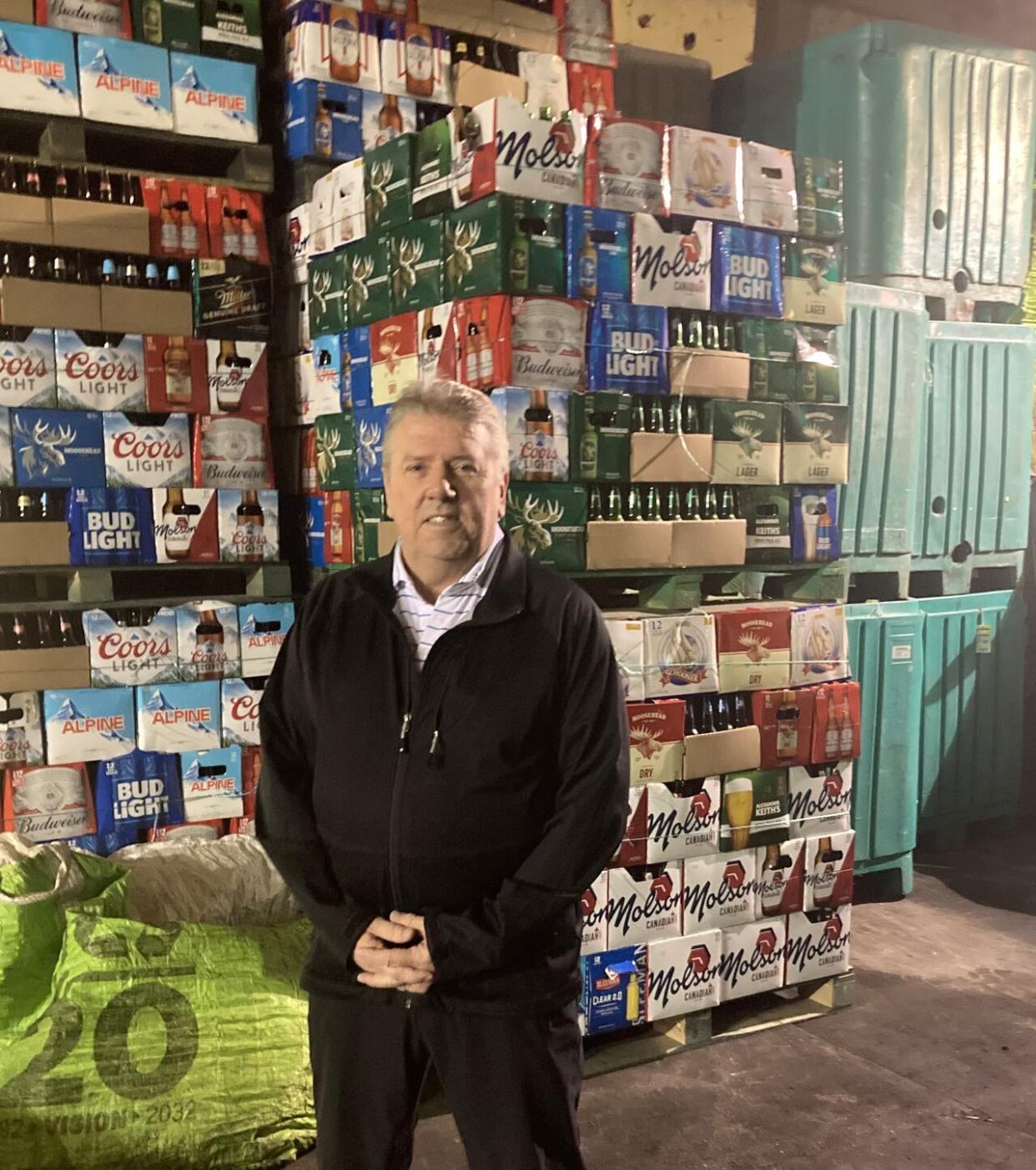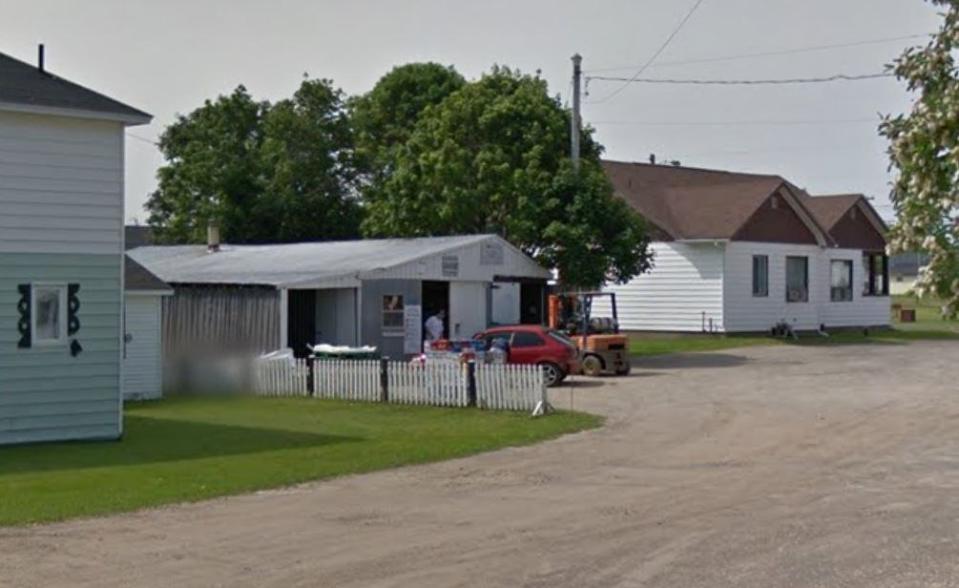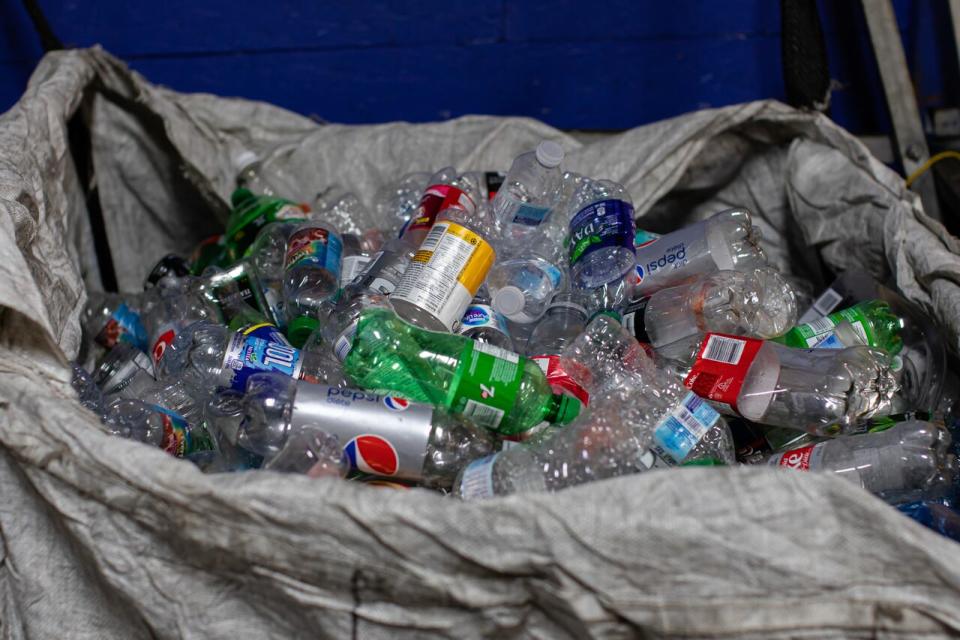Some bottle exchange operators in N.B. are talking about shutting down

It appears some small New Brunswick communities and their bottle depots may take a hit in the switch to producer responsibility for beverage container waste.
About six small redemption centres are on the brink of closure, estimated David McCarthy, who is secretary of the Eastern Recyclers Association, which represents 50 of the 69 bottle depots in the province.
The beverage container recycling program is migrating to a new framework in which the bottling companies are fully responsible for dealing with their waste material.
Encorp, a not-for-profit organization that serves the bottling companies, is taking on the role of administrator. It presented a first service agreement to redemption centre operators in early February that is supposed to take effect April 1.
"There's too much negative in that contract for me to keep on going," said Cathy DesRoches, owner-operator and sole employee at Caissie's Recycling in Rogersville.
Customers will have farther to travel
DesRoches announced on Feb. 16 that after 32 years in business, Caissie's will close at the end of March.
Locals will have to travel more than 40 kilometres to Saint-Louis-de-Kent or Miramichi to drop off their empties.
Some of the stipulations in the service agreement that recycling centres are being asked to sign would be difficult for DesRoches to comply with.
"They want it heated in the evening," she said. "They want no dirt on the floor … My floor is dirt."
DesRoches said the deal she's being offered is too short-term for her, since she'll need financing for renovations to meet new requirements.
"After two years they can decide what they want to do — whether we're going to get our licence again or they could give it to someone else."
It's a change from the way the Environment Department used to run things.
McCarthy said in 30 years he's never heard of an existing operator not having their licence automatically approved for a five-year term. And they used to be able to sell their licences if they wanted to sell their business or retire.
DesRoches also objects to the required hours of operation.
"Saturday they want us to be here a full eight-hour day," she said. "In a small town, we don't need that.
"There's a population of maybe a little over 2,000 people in Rogersville. I won't have customers most of the time."

Caissie's Recycling in Rogersville announced its closure after 32 years in business, citing problems with meeting terms of service set by Encorp. (Google Streetview)
She suggested other small communities, such as Doaktown and Blackville, could be in the same situation.
McCarthy added McAdam ti these, noting the village relies on workers from an employment program for people with special needs that only runs on weekdays.
He suggested the future was also uncertain for some satellite drop-off locations on the outskirts of Fredericton.DesRoches said if centres don't open the set hours, pay will be docked six per cent.
"It's ridiculous. We know what business we had. We made our hours to accommodate the customers."
The changes are meant to boost the rate of containers being returned, said Pierre Landry, Encorp president and CEO.
"I think we're at a crossroads. The fact of the matter is we need to do a better job."
The redemption rate in New Brunswick for non-alcoholic beverage containers is about 63.5 per cent, he said, and it needs to be at least 75 per cent in the next three to four years.
The industry is becoming fully responsible for achieving that performance target, he said.

New Brunswickers will likely see fewer locations to drop off bottles. (Maggie MacPherson/CBC)
Access and convenience for consumers need to be improved, said Landry.
Consumers expect things such as good lighting and polite service, he said, and operators must have liability insurance if Encorp is going to be directing the public there.
Landry acknowledged that smaller operators may find it difficult to meet these terms.
He noted Encorp has introduced a subsidy of $4,800 to $12,000 that could help those who deal with fewer than three million containers a year stay in business.
He suggested they could also take advantage of other recycling programs such as electronics and paint to increase their revenue and to improve their viability.
"I don't want to lose any collection points," he said.
The number of redemption centres across the province has already dropped from 108 in 1992 to 69 today.
Landry said he doesn't know what "the right number" of depots is, but Encorp is working on a mitigation plan for any recycling services that are lost, including possible new collection services in retail locations.
Operators aren't against all of the changes, especially technological innovations, said McCarthy, but they weren't given much time to adapt.
"It's just very overwhelming," he said. "If they would have got this to us in October when they were supposed to … we would have had this worked out,"
McCarthy said recycling centre operators are also feeling insulted because the province told them they'd be consulted as the new arrangements were established, but they weren't.
They've run independently for decades and are now being treated more like franchisees, he said.
Some will need more storage space and larger customer service areas, said McCarthy.
All centres are going to have to use Encorp's point of sale system. It automatically keeps track of how many bottles have come in at what time and the dollar amount going out to customers.
"Encorp pays for the equipment but you still have to have all the infrastructure, like electricity and internet," said McCarthy.
That's not a problem for most larger centres, he said, including the ones run by Resource Recovery Inc. in Fredericton and Oromocto, where McCarthy works as technical manager.
Fifty-one recycling centres have already been switched to Encorp's digital inventory system in the last couple of years, said Landry.
Some other changes should make things better for centres, he added.
For example, last year they sorted containers into 23 different categories, he said.
Starting on April 1, that work will be less onerous because they'll be able to lump more containers together and only have to sort them into 10 groups, he said.
Encorp also manages contracts for collection and processing.
Currently, it has plastic hauled to a company called Novapet in Amherst, N.S. Aluminum is baled and goes to the U.S. Those two materials account for 92 per cent of containers.
Cardboard and fibre beverage containers go to Quebec, glass bottles to Moncton. A small percentage — 1.6 to 1.7 — are refillable.


